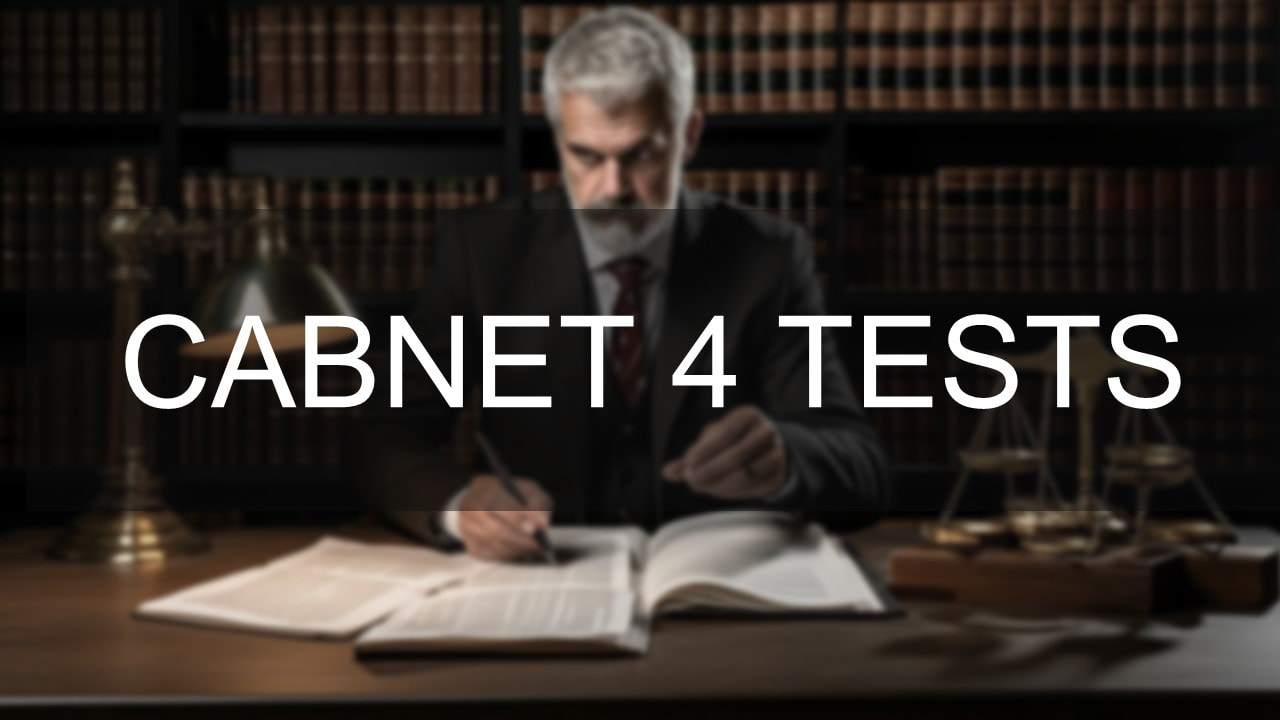|
While the construction industries stakeholders are worried about payment, the legal fraternity is rather worried about the nuances of how to “stay” and how to seek “leave” of the Adjudication Decisions (‘AD’) in court.
A ‘stay’ for an Adjudication Decision (AD), is commonly known as a suspension for the AD to be enforced, under s.16 CIPAA, pending ‘setting aside’ by the court or final determination by the court or in arbitration. Whereas, ‘enforcement’ comes under s.28 CIPAA, the other end of the matrix. Thus the question, whether an AD, after having been enforced as an Order of the Court, can be stayed, and if so, would the Federal Court decision in View Esteem Sdn Bhd v Bina Puri Holdings Sdn Bhd [2018][1] be overruled? Such is the “leave” questions to the Federal Court in ASM Development (KL) Sdn Bhd v Econpile (M) Sdn Bhd Anor [2023][2]. Follows up, in the series of cases[3], the court will inclined to dismiss the stay when there is no clear or unequivocal error in the AD; even if there is an ongoing arbitration or litigation; and when there is no real risks of the inability to repay the adjudicated sum. However, as in another situation[4], a conditional stay maybe granted if court finds there is real risks of the inability to repay the adjudicated sum. In summary, unless otherwise there is a gross injustice, the court tends to dismiss the stay when the AD has been upheld earlier. ------------------------------------------- [1] MLJ 22; [2019] 5 CLJ 479 [2] 4 MLJ 720 [3] Ahmad Zaki v Versalink Marketing [2023] CLJU 1193; AMD Construction and Engr v LDE Projects Anor [2023] CLJU 1651; Wabina Constructions v LDE Projects Anor [2023] CLJU 1651; BMG Global v Juang-Antara Bina [2023] CLJU 2407; Meridian Contracts v Baeur (Malaysia) Anor [2023] MLJU 3043; Classic Series v Ng Lung Yang [2023] CLJU 2066 and Land Success Engineering v Amindo Packaging Anor [2023] MLJU 3146: no arbitration commence. [4] Mudajaya Corporation Bhd v KWSL Builders Sdn Bhd & Anor [2023] 6 CLJ 770; Samsung C&T Corp UEM Construction JV Sdn Bhd v Eversendai Constructions (M) Sdn Bhd [2023] CLJU 2319
0 Comments
One of the contentious issues with regard to CIPAA is the recoupment of unpaid sum from the principal and the following chronicles of cases shed some lights onto this murky aspect in pragmatic terms.
In HSL Ground Engineering Sdn Bhd v Civil Tech Resources Sdn Bhd and another summons [2020][1], HSL served notices requesting payment directly from the principal and Civil Tech contends that there is no money due to them. The problem arise is when the principal fails to issue the written notice to the non-paying party. The court held that such failure attracts (1) the principal must pay the unpaid party; and (2) It would be fatal to defence that there are no monies due to the non-paying party, consistent with the earlier ratio.[2] However, Glocal Tech Engineering Sdn Bhd v Panzana Enterprise Sdn Bhd [2021][3] departed from the above authorities. In this case, the principal Panzana did not issue any notice and argued, whether the question of “is there any money due” has to be satisfied prior to triggering the mandatory notice. The court surprisingly agreed with such position. In Pali PTP Sdn Bhd v Bond M&E Sdn Bhd [2021][4], court held that non-payment is presumed and the onus is for the unpaid party to enquire whether such has been paid from the principal; and “Adjudicated amount” also includes interest and costs. Then, in Zeta Lektrik Sdn Bhd v JAKS Island Circle Sdn Bhd [2022][5], following the earlier ratios of CT Indah and PCOM, until Cabnet Systems (M) Sdn Bhd v Dekad Kaliber Sdn Bhd & Anor [2020][6] came into existence that the court laid out the test known as the Cabnet Four Tests: Cabnet 4 Requirement Tests: [First condition], the Test required to show that the unsuccessful party in CIPAA, (hereinafter “X”) has failed to pay adjudicated amount to the successful party (hereinafter “Y”). [Second condition], it is evidence that the successful party in CIPAA, Y has made a request to the unsuccessful party, X’s principal, (hereinafter “Z”) to make the payment to the successful party, Y. [Third condition], there is a sum owed from principal, Z to unsuccessful party, X during the time the successful party, Y has made a request to Z. Note: only when the first, second and third conditions are fulfilled, the evidential burden concerning the Third condition shifts from Y to Z, the principal. [Fourth condition], the principal, Z did not response to the successful party, Y’s request for payment of the adjudicated amount. S.30 of CIPAA can only be invoked if there is money due by the principal, where this evidential burden is a condition precedent before issuance notices under s.30. Following such, in JDI Builtech (M) Sdn Bhd v Danga Jed Development Malaysia Sdn Bhd [2022][7] the COA held that s. 30(5) of CIPAA “if money is due by the principal to the party, such is the overarching pre-condition before any subsections of s.30 may be utilised; [where] an application under s.30 is ill-suited where everything hinges on the lawfulness or unlawfulness of the main contract termination as the Main contractor is not a party to the s.30 proceedings.[8] Then, the question of whether s.30(1) notice is invalid in the face of judicial management application? In Cosmos Infratech Sdn Bhd v Turnpike Synergy Sdn Bhd (HC), the court held that s.30 is a separate and distinct statutory obligation imposed on a principal to make payment and must take precedence over the general sections of companies act. Then, the question of whether how to determine who is the principal? In Progress Centre Engineering sdn bhd v Desaru Corniche Hotel sdn bhd & MRCB [2022][9] the court held that it is by conduct placed on the same lateral level in the chain of construction contract as the main contractor, meaning that the employer of the project is the principal for the purposes of s.30 of CIPAA. Arena Perintis sdn bhd v Pembinaan Bina Bumi sdn bhd [2023] [10] went on to hold, winding up does not affect direct payment under s.30 of CIPAA; and does not contravene the rule of undue preference and is not against of the pari passu principle; as such, there is no necessity to pierce the corporate veil; and any failure to issue s.30(2) notice is fatal that there is no money due or payable. --------------------------------------------------------------- [1] MLJU 717 [2] CT lndah Construction Sdn Bhd v BHL Gemilang Sdn Bhd [2019] MLJU 1215 CA; PCOM Pacific Sdn Bhd v Apex Communications Sdn Bhd & Anor [2020] MLJU 118; HMN Nadhir Sdn Bhd v Jabatan Kerja Raya Malaysia & Ors [2018] 1 LNS 1938 [3] MLJU 474 [4] (CA) W-02(C)(A)-399-02/2021 [5] MLJU 392 [6] MLJU 311 [7] (CA) J-02(C)(A)-1066-06/2022 [8] JDI Builtech (M) Sdn Bhd v Danga Jed Development Malaysia Sdn Bhd (CA) J-02(C)(A)-1066-06/2022 [9] wa-24c-187-09/2022 [10] BA-24C-32-04/2023 |
DYA+CAuthorDYA+C is set up by Ar. DAVID YEK TAK WAI to undertake resolution of commercial disputes through ARBITRATION and ADJUDICATION, specializing in CONSTRUCTION PAYMENT DISPUTES. This is an educational blog. We do not guarantee, confirm nor warrant the accuracy of the information and facts stated therein. Read at your own 'risk'.
Archives
April 2024
Categories
All
|
- Home
- About
-
Practice
-
DYA + C
-
Consultant
-
Educator
- Author I am...
- Speaking Engagement >
- Attempting Law School
- Journey in USM(Arch) >
- Discourse in Studio 6 >
-
d:KON 4
>
- Actors >
-
Acts
>
- Portraiture
- A Slice of Space Time
- Box of Installation of Lights
- Radio Misreading
- Grid of Destinies
- Shelter
- Anatomy of Pain
- Tensigrity of Ego
- Of Prisons and Walls
- Forest of Nails
- Curtain of Fears
- Dissolution of the Ego
- If it's Ain't Broken it's Ain't Worth Mending
- Flight of Freedom
- Cross of Complexity and Contradiction
- interrogation
- Stage >
- Play
- Approach
- Galleria >
- External Critique >
- Philosophy
- Codes Regulations & Standards >
- Photo Essays
- Contact



 RSS Feed
RSS Feed
